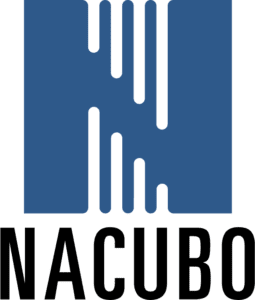Executive Summary
These Hallmarks are an attempt to infuse idealism into a budding, dynamic profession – to help first-generation leaders in this field so online education can assume its rightful place in what makes universities excellent, respected, and essential to their communities.
We identify seven facets of leadership and organizational development in this young domain:
Internal Advocacy. Recognizing that online education, by its very nature, will be an integrated and extensive facet of its university, those charged with leading an enterprise must build internal alliances, and reflect the larger goals, values, and strategies of their institutions.
Entrepreneurial Initiative. Recognizing that online education is inevitably about innovation, experimentation, risk, and imagination, emerging leaders must have the skills and creativity to facilitate responsible change.
Faculty Support. Recognizing that online education is not a solitary instructional process, but one that requires extensive support and resources, leaders must envelop their faculty with the tools they need to create education equal to, if not exceeding, that of the traditional classroom.
Student Support. Recognizing that online students demand a learning experience at least comparable to that on-campus, leaders must be ongoing advocates for students earning their degrees remotely from their institutions.
Digital Technology. Recognizing that technology creates both opportunities and anxieties, leaders must provide an environment that is current, dependable, and rich in the creative use of tools to enhance learning, interaction, and program integrity.
External Advocacy. Recognizing that online enterprises must represent their institutions to an often skeptical public, leaders must be an authoritative voice to regulators, accreditors, alumni, members of the business community, and many others.
Professionalism. Recognizing that emerging entities need policies and practices that demonstrate the integrity of a profession still establishing itself, those leading the growth of online learning must exemplify the highest ideals and contribute to a growing professional community on a national scale.
Online education is now critical for the future of America’s universities. These institutions can no longer establish a presence in this arena without a concerted institutional strategy and structure to accomplish this now major undertaking. These Hallmarks are an attempt to articulate those features and principles that will create opportunities for students that far exceed anything already achieved in higher education, take pedagogy to a new level, and demonstrate the capacity of universities to be an even more vital force in our society.

Special thanks to the 2014-2015 National Task Force on the UPCEA Hallmarks of Excellence in Online Leadership:
Jay A. Halfond, Boston University; Senior Fellow, National Council for Online Education (chair)
Andrew Casiello, Old Dominion University
Dave Cillay, Washington State University
Nancy Coleman, Keypath Education
Vickie Cook, University of Illinois Springfield
John LaBrie, Northeastern University
Mary Niemiec, University of Nebraska
Witt Salley, Clemson University
Endorsements of the UPCEA Hallmarks of Excellence in Online Leadership include:








UPCEA Hallmarks of Excellence in Online Leadership by UPCEA is licensed under a Creative Commons Attribution-NonCommercial-NoDerivatives 4.0 International License.
